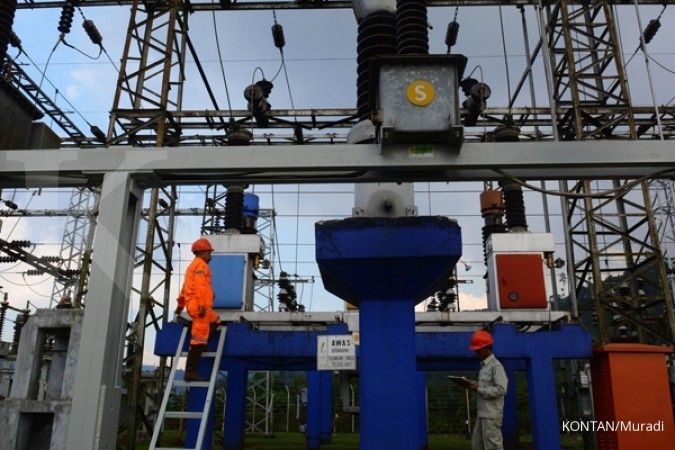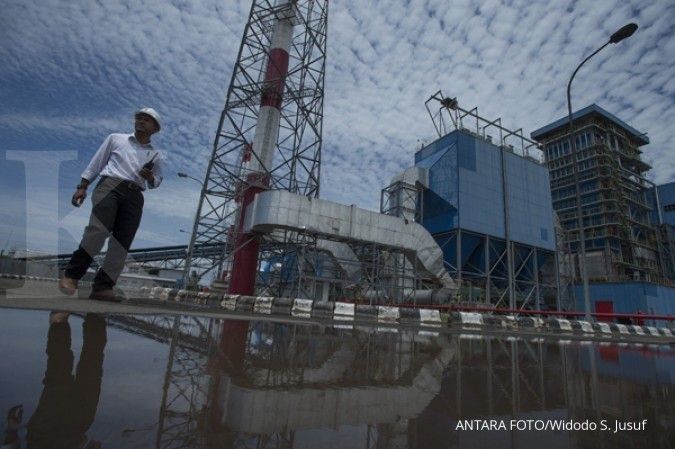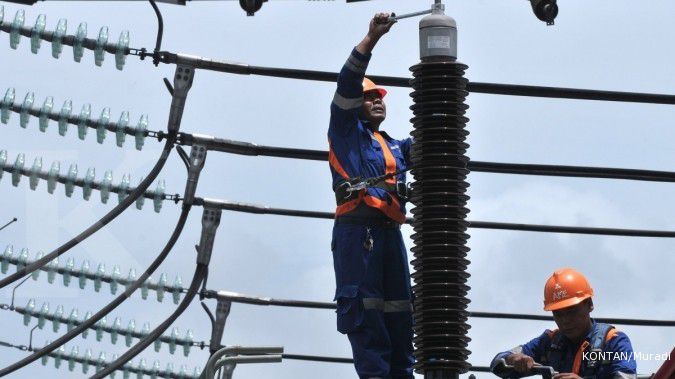BANDAR LAMPUNG. Hong Kong-based coal miner China Shenhua Energy Co. Ltd. has expressed a commitment to build coal-fired power plants in Lampung as poor electricity remains a problem in a number of regions across the country.
The company, part of the Chinese government’s mining and energy company Shenhua Group, and the Lampung administration have signed a memorandum of understanding (MoU) on a partnership commitment between the two parties to build 2x350 megawatt (MW) mine-mouth power plants in Mesuji, Lampung.
The MoU also includes a commitment to establish other power plants with a total capacity of 6x350 MW.
Cong Guin, a representative from the company’s Guohua Electric Power Branch, said the development would be environmentally friendly as well as meet the standards of security, efficiency and advanced technology.
“The coal boiler will be designed in a special way to match local resources of coal,” Guin said.
Rampant electricity shortages in various regions across the archipelago have hindered economic activities in Southeast Asia’s largest economy.
Lampung reportedly lacks up to 300 MW of electricity supply.
The new administration of Joko “Jokowi” Widodo has planned to encourage the development of power plants in the country, since the country faces the possibility of an energy crisis in the near future, which, according to the Indonesia Petroleum Association (IPA), could make the country a net importer of energy by 2019.
The administration has recently prepared strategies to reach the target of a 35,000 MW electricity supply by the end of 2019 as stated in Jokowi’s programs during the campaign period.
I Ketut Dharpa, public relations manager at the state-owned electricity firm PLN’s Lampung Branch, said the future mine-mouth power plant that would be built by the Chinese investor was expected to solve the problem of electricity shortages in the province.
Ketut said the ideal level of installed power in Lampung was around 1,000 MW as the PLN served more than 1 million customers in the province.
According to Ketut, Lampung currently has a peak load of 819 MW, 30 percent of which needs to be kept in reserve for the province.
“Lampung has a total capacity of only 819 MW, which is partly due to contributions from the southern part of Sumatra through interconnection networks,” he said.
Ketut said PLN would continue future developments of power plants in the eastern part of Sumatra, including Sribawono and Labuhan Maringgai in East Lampung, despite delayed licensing from the regional administration.
“We hope that we can start construction shortly after the license is issued, so that there will be an additional 300 MW of power supply by the end of 2015. Next year, Lampung will be free from electricity shortages if the plan is implemented on schedule,” he said.
Regarding Sumatra, Jokowi urged the optimization of existing power plants, even though a number of obstacles, such as land acquisition, had impeded the government’s plans to develop new electricity
plants.
Jokowi has also visited South Lampung’s steam-fueled power plants (PLTU), Sebalang and Tarahan, which were built just a few years ago but have often experienced technical problems, resulting in rotating blackouts in regions across Lampung.
Lampung governor Ridho Ficardo said Lampung has major potential when it comes to electricity resources, including geothermal energy, with a capacity of 2,867 MW or equal to 10 percent of the country’s total potential.
Ridho said further that the province also had biomass potentials for biogas and bioethanol as well as other alternative energy sources, such as wind and water. (Oyos Saroso H. N)
Chinese firm to build power plants in Lampung
January 15, 2015, 09.53 AM
/2012/02/09/531986761.jpg)
ILUSTRASI. Logo Bank Indonesia. REUTERS/Ajeng Dinar Ulfiana
Source: The Jakarta Post
| Editor: Hendra Gunawan
Latest News
-
March 02, 2026, 01.10 PM
Asian Assets Slide as Mideast Strikes Spark Oil Spike, Haven Rush
-
March 02, 2026, 10.49 AM
Bank Indonesia Monitoring Market Movements in Response to Conflict in Middle East
-
February 25, 2026, 08.28 PM
Inpex to Solicit Bids for Construction of Indonesia's Abadi LNG Project in Mid-2026
-
February 24, 2026, 03.38 PM
Eni to Reach Final Investment Decision for Indonesia Gas Projects Next Month
-
February 24, 2026, 01.00 PM
Asia Stocks Try to Steady after Wall Street Selloff Sims Mood
-
February 23, 2026, 04.50 PM
Wall Street Futures and Dollar Slide on Trump Tariff Tumult
-
February 23, 2026, 02.17 PM
Indonesia's Government Spending Jumps 26% in January 2026
-
February 23, 2026, 01.47 PM
Indonesia's Government Spending Jumps 26% in January
-
February 21, 2026, 06.00 AM
Indonesia's Pertamina to Maintain Bidding Process for US Energy Imports












